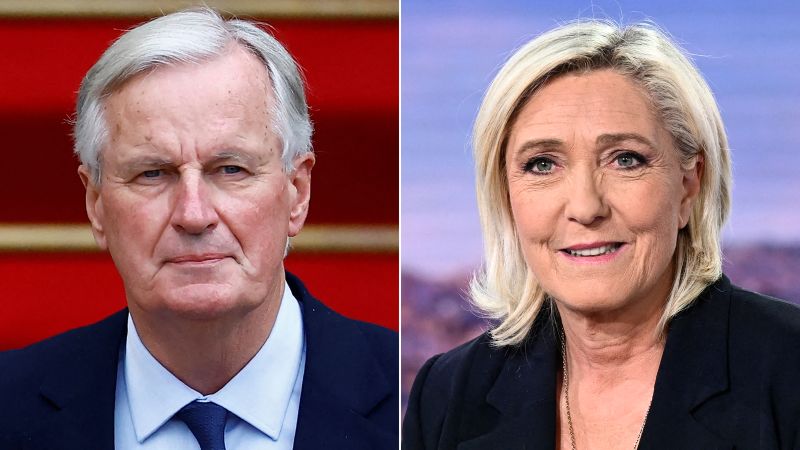
French Lawmakers Surge Forward with No-Confidence Vote Threatening Government’s Fate
French lawmakers push through no-confidence motion that could topple government
The recent political events in France have sent shockwaves through the country, as lawmakers have successfully pushed through a no-confidence motion that could potentially topple the government. The motion, which was introduced by opposition parties, garnered enough support to pass in the National Assembly, marking a significant challenge to President Emmanuel Macron’s administration.
The no-confidence motion reflects growing dissatisfaction with the government’s handling of various issues, including economic policies, social welfare, and environmental concerns. Critics argue that Macron’s government has failed to deliver on its promises of reform and has been unable to effectively address key challenges facing the country.
The motion comes at a critical time for France, as the country grapples with the economic fallout of the COVID-19 pandemic and social unrest stemming from issues such as income inequality and climate change. The success of the no-confidence motion highlights the deep divisions within French society and the increasing pressure on the government to respond to the needs and demands of its citizens.
In response to the motion, Macron and his administration have sought to downplay its significance and rally support from members of the ruling party. However, the outcome of the vote remains uncertain, as lawmakers from across the political spectrum weigh their options and consider the potential consequences of toppling the government.
If the government is toppled as a result of the no-confidence motion, it could lead to early elections and a period of political instability in France. Such a scenario would further complicate efforts to address pressing issues and could have far-reaching implications for the country’s future direction.
Overall, the passage of the no-confidence motion underscores the challenges facing Macron’s government and the deep-seated dissatisfaction among the French populace. As the country navigates this period of uncertainty, the outcome of the vote will have profound implications for the political landscape in France and could determine the course of future governance and policymaking.
